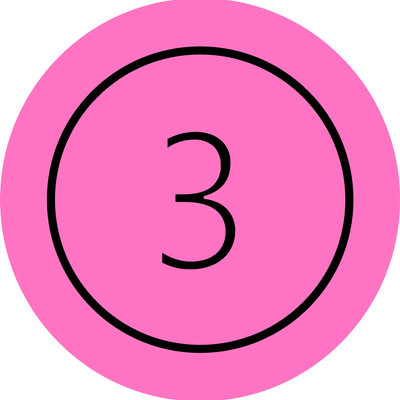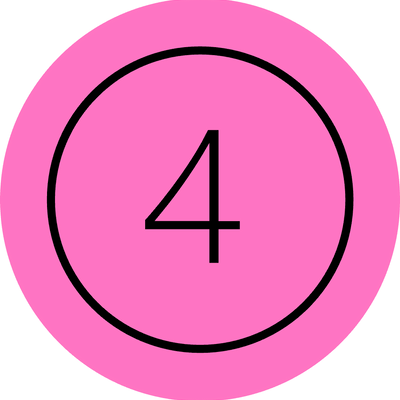In this guide, we will discuss how you can best present examples of the array of skills developed over the course of a research project, and how you can demonstrate those skills to potential employers.
 Introduction
Introduction
Research is the foundation of a PhD or Postdoc; it is the main day-to-day activity and vital for the publication of a paper or thesis. As your research will be highly specialised, it can be hard to imagine that the research skills you develop over the course of your project are transferable. However, despite research being fundamental to academia, the transferable skills required of a researcher are also necessary for a multitude of non-academic positions. For example, putting together a business plan, formulating social and political policies, informative or creative writing, designing, and developing new products, analysing economic stability prior to making financial investments, and identifying best working practices all require research skills. The list is extensive and because research skills are essential to most employers. At the core, research is about formulating a question that needs to be answered, identifying the information required to answer that question, and selecting the best methodology to gather, analyse, and interpret that information in order to propose a solution. It also requires the ability to present your results in an effective manner.
While your biological expertise and the technical skills that accompany it may be important in getting you a job in your chosen field, and will be vital if you are applying for another research post in that area, for jobs outside of your current field of study or outside of academia, you must also highlight the huge array of transferable you have developed over the course of your career. The first step is knowing what skills you have.
Here we will explore some of the skills you have gained in a research position, detailing examples of when you developed them during your PhD or Postdoc and why employers desire those skills, before thinking about how you can highlight these skills to potential employers during your job search.
 Key terms
Key terms
Transferable Skills - an individual’s strengths, qualities and expertise that can be used in a variety of job roles and occupations.

Employability skills - The transferable skills that are required to make an individual a good employee. This includes job specific “hard skills” such as subject knowledge or the ability to operate a specific piece of equipment, as well as “soft skills” that allow someone to work in a team and perform well.

Soft skills - The social skills and character traits that allow you to interact well with members of your team and support strong working relationships. They are general attributes that are not specific to a job or industry and are usually self-developed, meaning no formal training is needed to build them.

Hard skills - The job-specific skills and knowledge you need to perform a job. They are the skills you gain through education, training programs, and certifications.

 Project management
Project management
When you developed the skill
A research position is an exercise in project management as it requires you design a project with a realistic timeline and overcome setbacks along the way - all whilst satisfying the interests of supervisors, colleagues, and stakeholders. You will have also had to manage the long-term project at the same time as meeting short-term goals like completing individual thesis chapters, experiment designs, presentations, and publications. These all involve their own miniature ‘project cycles’.
Why employers want you
These skills make you an incredibly efficient employee. The ability to identify and set objectives and prioritise your workload and resources reduces the need for micro-managing and helps to deliver projects on time and as promised.
When you'll see it requested
Most jobs will require project management to some extent, which is why you will see the skill requested in a broad range of job adverts.
 Critical Thinking
Critical Thinking
When you developed the skill
Whether you realize it or not, you will have certainly developed strong critical thinking skills over the course of your research career. You have been trained to systematically approach problems, make connections between ideas, evaluate others research, and analyse information in order to draw your own conclusions.
Why employers want you
Any industry can benefit from someone who thinks for themselves in this way. Someone who takes a moment to reflect first, helps in the decision-making processes, avoiding unnecessary problems, providing solutions, and increasing productivity. Critical thinking also helps you to evaluate your own work and find ways of improving your own habits.
When you'll see it requested
Examples from job descriptions of where critical thinking is asked for.
 Public speaking
Public speaking
When you developed the skill
Strong oral communication skills are always valued, and researchers get more public speaking opportunities than most. Through conference talks, poster presentations, teaching, and outreach events, you can demonstrate that you feel comfortable talking in front of a large audience, and that you can present often complex scientific principles in a clear and engaging way. If you have won a teaching award, or prize for best speaker or poster at a conference, this is concrete evidence of your public speaking and presentation skills.
Why empoyers want you
Presentation skills allow you to curate and deliver information in a clear and effective way, as well as creating supportive materials such as slides. Prospective employers value this skill as it means you will be able to deliver briefings and reports to colleagues, conduct training sessions, or present information to clients.
When you'll see it requested
Public speaking and presentation skills are often requested as they show that you are an effective communicator.
 Leadership
Leadership
When you developed the skill
Over the course of your PhD or Postdoc, you are responsible for leading your project. This does not always mean that you will be leading other people, but you are certainly responsible for key acts of decision making and ensuring important targets are met. There will also be times when you may have demonstrated leadership in a more conventional sense. You will have worked as part of a larger research team needing to collaborate on shared projects, or perhaps will have helped to organise conferences and events both of which require cooperation and leadership. You will have also developed leadership skills if you were involved in lab demonstrations and undergraduate teaching. In this role you will have had to motivate students to help them accomplish a goal, evaluate performance when grading work, and guide development through constructive feedback.
Why employers want you
Great leadership skills make for an employee who is good at listening, encouraging, and motivating. This means they can get the best out of other people and drive successful outcomes for projects.
When you'll see it requested
Leadership is essential to many roles across all levels within a company, not just the top positions.
Execute strong team leadership by coaching and training other District Reps, and by planning leading portions of District Meetings.
You will have good leadership skills and ideally have previous supervisory experience.
We are looking for a candidate who has leadership experience and can mentor new staff and develop existing staff into creating a dynamic team.
To assist in training of laboratory and production staff.
Must demonstrate both leadership and communication within a team setting and understand communication tactics and strategies.
 Teamwork and collaboration
Teamwork and collaboration
When you developed the skill
While your thesis is an independent project, on a day to day basis in academia you work collaboratively with other people. This may be working on a collaborative research project or preparing a journal manuscript together. Successfully completing these tasks requires knowing how to divide and delegate actions, effectively communicate, and resolve conflicts. You will have also developed these skills if you sat on a committee or helped organise an event.
Why employers want you
Simply stating that you participated in a team project does not demonstrate teamwork skills to future employers. You must illustrate how you were essential to the team’s success. Think about examples from where you effectively dealt with challenges such as developing and managing relationships, negotiating conflicting ideas, or acting as a self-advocate for your own ideas and results. This demonstrates that you can build professional working relationships with a wide variety of people.
When you'll see it requested
Employers want to know they are hiring someone who can communicate well with others and complete projects successfully as part of the team.
 Adaptability and resilience
Adaptability and resilience
When you developed the skill
Resilience is the capacity to bounce back from disruptions, and adaptability involves reformulating your goals and strategies based on the disruption. This probably sounds very familiar as researchers are faced daily with new and changing situations that require them to adapt and be flexible. For example, an unexpected set of results, a failed experiment, or a PI who changes their mind on the direction your research should take. As a result, you will have learnt how to quickly adjust to tackling a new topic, solving a new problem, and getting results.
Why employers want you
Employers want applicants to be able to demonstrate that they are resilient and adaptable, as this means a future employee who is self-confident enough to respond positively to change and new ways of working, a fast-learner who is able to think quickly on their feet, and someone who can respond appropriately to large amounts of information.
When you'll see it requested
These quotes taken from job adverts are looking for candidates who are flexible, adaptable and resilient.
 Other skills
Other skills
Other skills
The skills explored so far are certainly not an extensive list, you will have developed many more important skills along the way. Further examples include:
Analytical skills
Developed when comprehending large amounts of background information on your topic area, and when analysing large and small datasets during your project. You then used this information to then form and defend independent conclusions.
Problem-solving
Over the course of your project you defined a problem, identified possible causes, drew connections between ideas and data, and draw your own conclusions from all of this.
Organisation
You managed a project or projects from beginning to end, identifying goals and tasks to be accomplished within a realistic timeline and were able to prioritise these tasks along-side anticipating potential problems you may encounter.
Information management
Fostered through your experience in identifying sources of information that were applicable to the given project, understanding and synthesising large quantities of data, and developing ways to organise, evaluate, and display your data.
Self-management and independent working
Throughout your project you have worked effectively under pressure to meet deadlines and had to comprehend new subject material quickly. You have also worked with limited supervision on a self-directed project.
Communication
You have developed written communication skills by preparing concise and logically written materials from short abstracts for conferences, effective grant proposals, manuscripts, and of course your thesis. This shows an ability to write effectively as well as strong editing skills. You have also learned to verbally communicate ideas in oral presentations to small and large groups.
IT applications
From the creation of presentations, posters and written work, to data analysis and computational based research, you are highly competent in using basic and specific software and may have developed skills in coding and knowledge of programming languages too.
Budget management
You have experience managing a budget to support your research goal. You decided on how to allocate your project budget between the resources you needed and academic events to attend. You may also have experience raising money for a funding charity associated with your project or writing grant applications.
 Highlighting your skills to employers
Highlighting your skills to employers
Building your portfolio
Before you even begin your job search, make yourself a portfolio of skills. Initially you can use this as a personal diary of all the skills you have gained during your time in academia and your professional growth as a result. Hopefully, this will also build your confidence and self-belief. When the time comes to apply for your next position, you can use the list to draw examples for applications and interviews. It may also help you to identify jobs that you did not previously think of. Try typing the transferable skill you consider your best asset into the search bar of a job site and see what comes up.
To build your portfolio, look again over the full list of skills discussed in this booklet. Tick off all the skills you know you have. For each skill, try to describe a situation you used and developed it. You can use the following table to help you:
| Transferable Skill | Situation | Action | Outcome |
|---|---|---|---|
| Name the transferable skill you want to highlight. | Briefly describe the challenge, situation, or task that you were faced with. | Detail the action you took to overcome the challenge, displaying the key transferable skill you used. | Describe what the outcome was and where possible provide the results of your action in a quantifiable term. |
| Project management | Over the last two years I have managed my research project, investigating root growth in wheat. This was a long-term project that had many variables, as each stage of the research is dependent on the results obtained from the last stage. | I outlined the major milestones that would be involved in completing the project and worked backwards to break down the work that would need to be done at each stage. I used this to create a loose timeframe for my work and added in contingency time for any unexpected challenges. | There were a few small setbacks along the way, such as unforeseen results, but as I had a clear plan and goals in mind, I was able to quickly adapt. I therefore completed the research and published the results within the original 2-year timeframe. |
 Final tips
Final tips
Tailor your application to each job description and organisation
Look through the job description you are interested in applying for. Go through and highlight all the skills that they have requested. Make sure you demonstrate examples of these skills in your application. You can also look at the company’s website. Often organisations will have a webpage that outlines some of their core values, this might be in the form of a “mission statement” or “company vision”. You may want to draw from examples that demonstrate that you have similar values, or skills that can be used to promote the ideologies of the company.
Don’t talk in third person
In academic writing, pronouns are considered informal, and as science is a collaborative effort there is a mentality to speak as a collective. You may describe what “the lab” did, or what “we” showed. However, an employer is hiring you, not your whole research group. This sort of language doesn’t work well for a job application or interview. It is important to take credit for your achievements. Be explicit about your contributions. When you discuss your individual skills and competences use “i”, not “we”, to describe what you have done.
Come up with a one minute pitch
In an interview, as well as being asked about your skills for the job, you may also be asked to describe your previous role or research. It can be easy to talk for a long time about the intricacies of your work, but a prospective employer may not want all this information. Before starting your job-hunt, think about how you can concisely explain your research to a lay audience in less than a minute.
